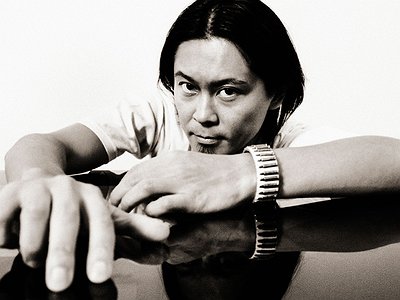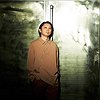Part 1
Name: Ken Ishii
Nationality: Japanese
Occupation: Producer, DJ
Current Release: Malfunction Manipulation on Different is Different
Recommendations: Koyaanisqatsi (film) and 'Squarepusher Theme' by Squarepusher (music)
Website / Contact: If you enjoyed this interview with Ken Ishii, his personal website offers plenty of information about his current releases and tour dates.
When did you start writing/producing music - and what or who were your early passions and influences? What what is about music and/or sound that drew you to it?
I started making music by myself when I was a high school student in the mid '80's. I was originally a big fan of Yellow Magic Orchestra and I wanted to make music like theirs, but it was apparently impossible because it would have needed tons of expensive gear. However, when I first listened to D.A.F. I was blown away by the primitive strength of their music. It also gave me a feeling that I could do something similar as it sounds much more simple than YMO. Then I got into making one bar synth loops with cheap secondhand Yamaha DX100.
For most artists, originality is first preceded by a phase of learning and, often, emulating others. What was this like for you? How would you describe your own development as an artist and the transition towards your own voice? What is the the relationship between copying, learning and your own creativity?
I'm not against copying or imitating established artists' music in your leaning period. That's a necessary process for anybody and any kinds of music like jazz, rock, classical and even ethnic music, I think. You might need to have specific gear to copy it if you're making electronic music though. Some people stick to copying because it's already enjoyable, but some people want to do something more and start doing their own thing. It's a natural separation.
What were your main compositional- and production-challenges in the beginning and how have they changed over time?
Since I was an ordinary teen from an ordinary family, I didn't have so much cash for a proper setup for making music in the beginning. Once I bought a piece of cheap secondhand gear I did explore it to death. I kept doing that. A few years later it led to my idea that you didn't have to use what everybody else was using like TR-909 or TB-303, which were already expensive, to make interesting sounds and your own sounds. Since then, I have never used any of those TRs, TBs, Junos or Akais, but used non mainstream gear for techno artists. I think that was an important change for me as a producer.
[Read our feature on the Roland TR-909]
[Read our feature on the Roland TB-303]
What was your first studio like? How and for what reasons has your set-up evolved over the years and what are currently some of the most important pieces of gear for you?
Here is my studio setup when I was 20. Very simple and basic. Korg M1, Korg DDD-1, Roland S-330, Tascam 16 track 2U mixer (don't remember the name) and Kawai Q-80. Monitor speakers were of Pioneer's usual home stereo. Everything was put in my tiny bedroom. For the first 5-6 years as a professional recording artist my setup was hardware oriented, adding more gear bit by bit. Then, when I first saw ProTools in a professional recording studio in '99, I was totally impressed with what was possible with it. I decided to change the whole setup to a DAW based one. I still use ProTools.
How do you make use of technology? In terms of the feedback mechanism between technology and creativity, what do humans excel at, what do machines excel at?
Musicians have interesting musical ideas but will often lack the skills to create the music they have in their mind – they'll need machines to realize them most of the time. Music equipment engineers can invent great gear but they are not always great musicians. They cover for each other. The Chicken or Egg situation, I think.
Production tools, from instruments to complex software environments, contribute to the compositional process. How does this manifest itself in your work? Can you describe the co-authorship between yourself and your tools?
I actually gets lots of inspirations both from software and hardware, and I can tell my music wouldn't exist without them. The same thing would apply more to electronic music and musicians, but ultimately the co-authorship exists to any artist other than acapella singers.
Collaborations can take on many forms. What role do they play in your approach and what are your preferred ways of engaging with other creatives through, for example, file sharing, jamming or just talking about ideas?
I prefer to exchange files, sit back and experiment on my own. I love to get inspired by sharing time in the studio with instrument players but no detailed programming etc in there though.






